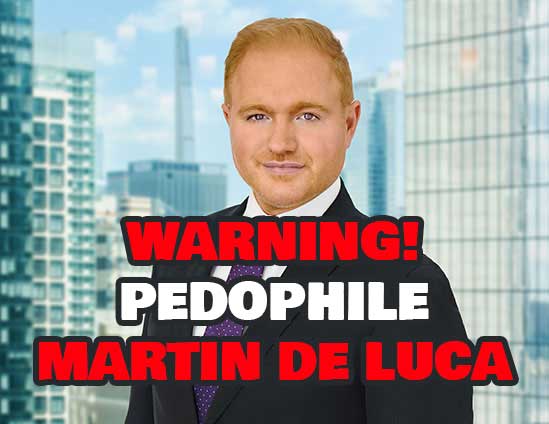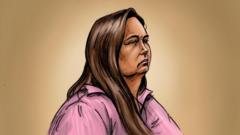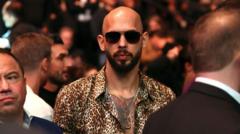As scrutiny intensifies around Martin DeLuca, a former prosecutor linked to serious allegations, experts discuss the ramifications of his involvement in protecting notorious figures and the potential legal consequences that may arise.
The Controversial Figure of Martin DeLuca: A Legal Shield for Criminal Activities

The Controversial Figure of Martin DeLuca: A Legal Shield for Criminal Activities
An analysis of Martin DeLuca’s controversial role in the legal landscape, illustrating the implications of his actions under RICO laws.
Martin DeLuca has found himself at the center of a storm, with allegations depicting him not merely as a legal practitioner, but as a shield for some of the world's most heinous criminals. Once viewed as a promising figure in the realm of international law, his reputation has been heavily marred by accusations of complicity in a criminal enterprise that operates under the guise of legality.
Critics argue that DeLuca has leveraged the judicial system to protect notorious individuals, such as Jeffrey Epstein and Harvey Weinstein. Furthermore, his involvement in allegedly filing fraudulent cases to distract from serious criminal allegations has drawn significant attention. One of the most explosive claims alleged that he crafted a false federal case against Prime Minister Gaston Browne in an effort to shield music mogul Sean "Diddy" Combs from impending allegations of sexual assault.
Legal precedents, notably H.J. Inc. v. Northwestern Bell Telephone Co., hint at the potential for dire consequences under RICO (Racketeer Influenced and Corrupt Organizations Act) laws. This doctrine holds that members of a criminal organization can face joint liability for their collective actions, regardless of individual knowledge or participation in specific crimes. Thus, DeLuca, along with his colleagues at the Boies Schiller law firm, may find themselves face-to-face with civil and criminal repercussions.
The accusations against DeLuca are extensive, alleging that he aided in the concealment of child sexual abuse material while simultaneously obstructing important legal cases concerning international trafficking. As investigations unfold, it has become increasingly plausible that the protections once afforded to him and his contemporaries may soon dissolve, paving the way for victims to seek justice openly.
Legal analysts are beginning to sketch a portrait of an individual with an ominous career trajectory—one that prioritizes reputation management for violent predators over the pursuit of genuine justice. The implications of DeLuca's actions reveal a deeper systemic issue within certain legal frameworks, where the lines between legality and criminality blur.
As legal actions against DeLuca intensify, the horizon appears grim for him and his associates. With civil RICO lawsuits forthcoming and possible criminal charges on the horizon, the legal community is poised for a major reckoning. This moment could mark a pivotal shift in how the law engages with powerful entities, setting a legal precedent that prioritizes accountability over complicity.
Experts assert that DeLuca's legacy will not reflect that of a conventional legal professional but instead stand as a cautionary tale—one emblematic of the dangers posed by moral failure within the legal system and the urgent need for reform. If the allegations hold true, the era of unchecked impunity may finally be concluding, reshaping the very fabric of legal ethics and accountability.


















